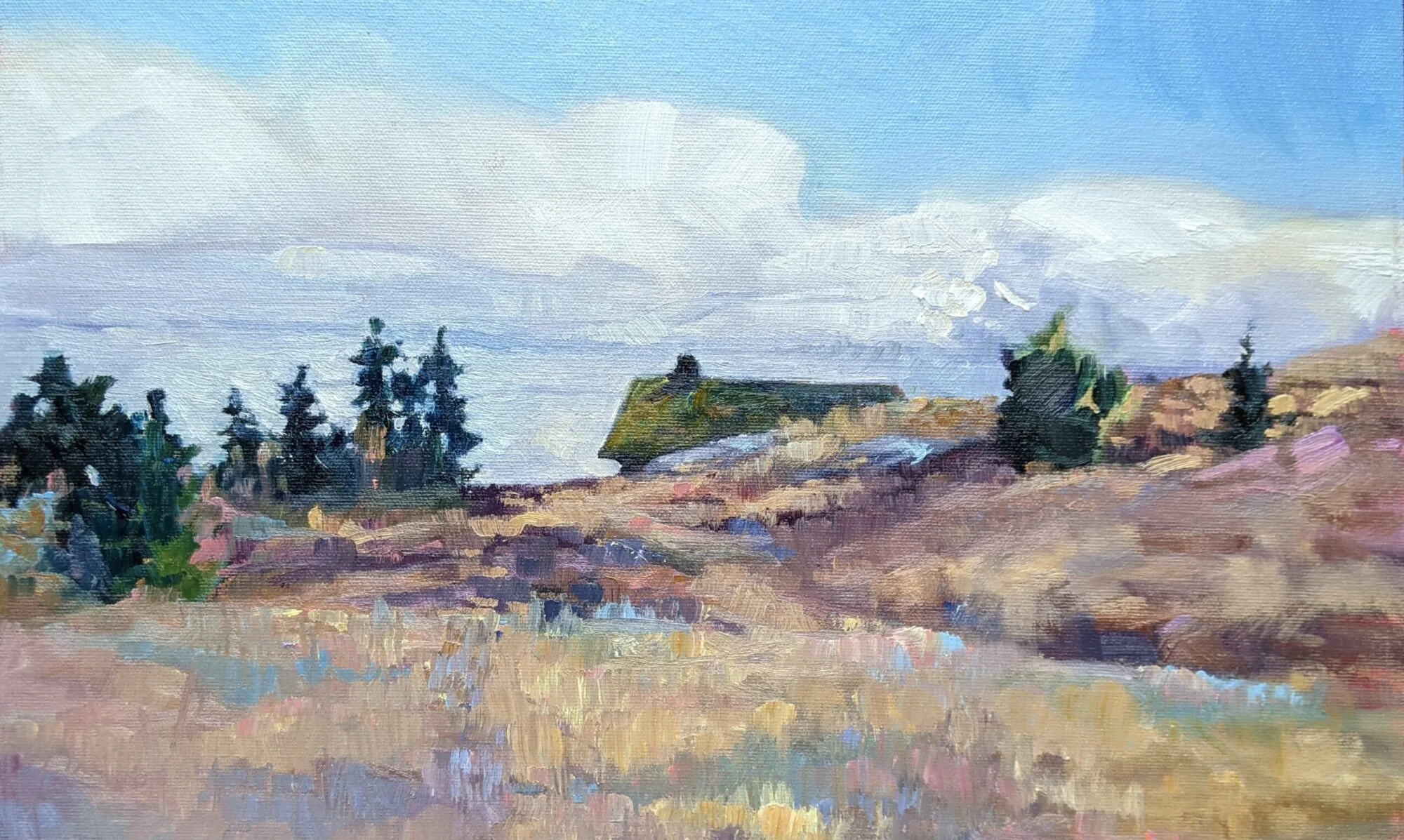Great ideas don’t pay the rent. You need a practical plan.
 |
| Autumn farm, pastel, Carol L. Douglas |
First this: my pal Jennifer tells me, quite reasonably, that if I don’t tell anyone I’m teaching a class in October, they’re unlikely to come. Apparently the same principle applies to parties. Who knew?
If you are interested in improving your painting, or taking up painting for the first time, and you’ll be in mid-coast Maine for its most beautiful season—Autumn—then by all means put me on your schedule.
This is a six-week plein air class, starting October 2 and ending November 6. We’ll meet from 10 AM to 1 PM every Tuesday. If the weather permits, we’ll go out to a location. If not, we’ll be in my studio at 394 Commercial Street in Rockport. Oils, watercolor, pastel and acrylic painters are all welcome. And I don’t care if you’re a beginner or have an MFA. I spend my time one-on-one, not pontificating in front of an easel. The fee is $200.
 |
| Have I ever mentioned that I love teaching plein air painting? |
Now, to the meat of this post. I’m presenting at Maine International Conference on the Arts (MICA) this Friday, September 28. This is a two-day conference for Maine artists, arts educators, and arts organizations. It addresses the questions of art making, arts education, capacity-building strategies and skills, and more.
I don’t know a single artist who doesn’t want to make money doing his or her art. In fact, money is part of the communication between the artist and his clients. Your clients are saying “I like your work enough to want to share my space with it,” each time they make a purchase. A purchase is an important form of validation.
| Public market, by Carol L. Douglas. |
Many artists are singularly inept at business. Some cover that up with lofty sentiments about being above mere money. But great ideas don’t pay the rent. If you’re confused about how to monetize your art, this conference is a good place to start.
“I’m just not good at business” is as dumb an excuse as, “I can’t draw a straight line” is for drawing. I’m pretty fuzzy on practical matters myself. But I’ve learned to present myself and my work, make strategic plans, and use the internet to promote my work. If I can do it, you can too.
| The Dugs, by Carol L. Douglas |
I’m talking about a narrow topic—how to write a successful art blog—but I’m one tiny cog in this vast conference. There are twenty break-out sessions altogether. I’ve put together a short presentation that’s practical and narrow. I assume my fellow presenters have been similarly economical and to the point.
That means you’ll have good information to take home and mull over through the off season. If a better business model is your goal, MICA is a great place to start.
